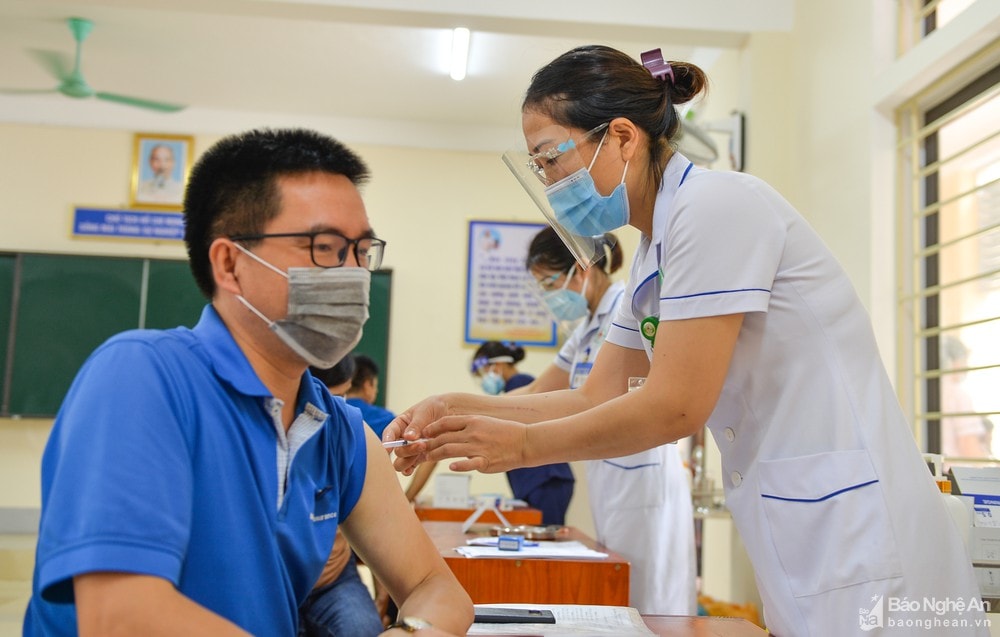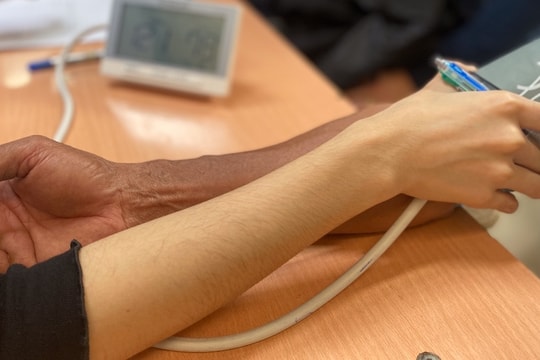7 chronic diseases that reduce the effectiveness of the Covid-19 vaccine
People with liver disease, breast cancer, kidney dialysis… do not have many antibodies against the SARS-CoV-2 virus after being vaccinated against Covid-19.
Researchers warn that about four in 10 people will fall into the group that does not respond well to the vaccine. As a result, many countries have planned to give booster shots this fall.
Accordingly, people with diseases such as leukemia, liver disease, arthritis... are less likely to be protected against Covid-19 by the vaccine.
The University of Glasgow and the University of Birmingham have conducted a large-scale UK-wide study to assess the effectiveness of the vaccine in immunocompromised patients.
The program uses a series of modern immunoassays performed on blood samples taken before and afterCovid-19 vaccinationin about 600 people. Initial data showed that 40% of participants had a low immune response after vaccination.
Additionally, approximately 11% of immunocompromised patients did not develop any antibodies 4 weeks after vaccination. The rate of failure to develop antibodies was higher in some patient groups, particularly those with ANCA-associated vasculitis who had been treated with Rituximab.
 |
| 4th Covid-19 vaccination in Vinh City. Photo: Thanh Cuong |
People with the following diseases have lower antibody levels than healthy people even after receiving the same vaccine:
- ANCA vasculitis treated with Rituximab - 90%
- Arthritis - 54%
- Hemodialysis - 21%
- Liver disease - 51%
- Breast cancer, prostate cancer… 17%
- Leukemia - 19%
- Bone marrow transplant - 33%
Caroline Donoghue is senior science knowledge and communications officer at blood cancer research organisation Myeloma UK. Donoghue said: “Some myeloma patients, particularly those already on treatment, do not respond well to the Covid-19 vaccine. Some people produce significantly lower levels of antibodies or even no antibodies after vaccination. So myeloma patients are living in a state of uncertainty, not knowing whether the vaccine will help them fight Covid-19.”
“However, there was a clear increase in immune response from the first to the second dose in immunocompromised patients, suggesting that they may benefit from a third dose.”
A new study has been launched to find out whether a booster shot makes a difference for people who have a poor response to two doses of the vaccine.
UK Health Secretary Sajid Javid said the booster vaccination programme played an important role in protecting those at high risk.
“Vaccines have built a strong wall of defence in the UK and this has allowed most of us to learn to live safely with Covid-19,” he said.
“We know some people may get less protection from the vaccine than others. So we are planning a booster vaccination program in the autumn, prioritizing those at high risk.”


